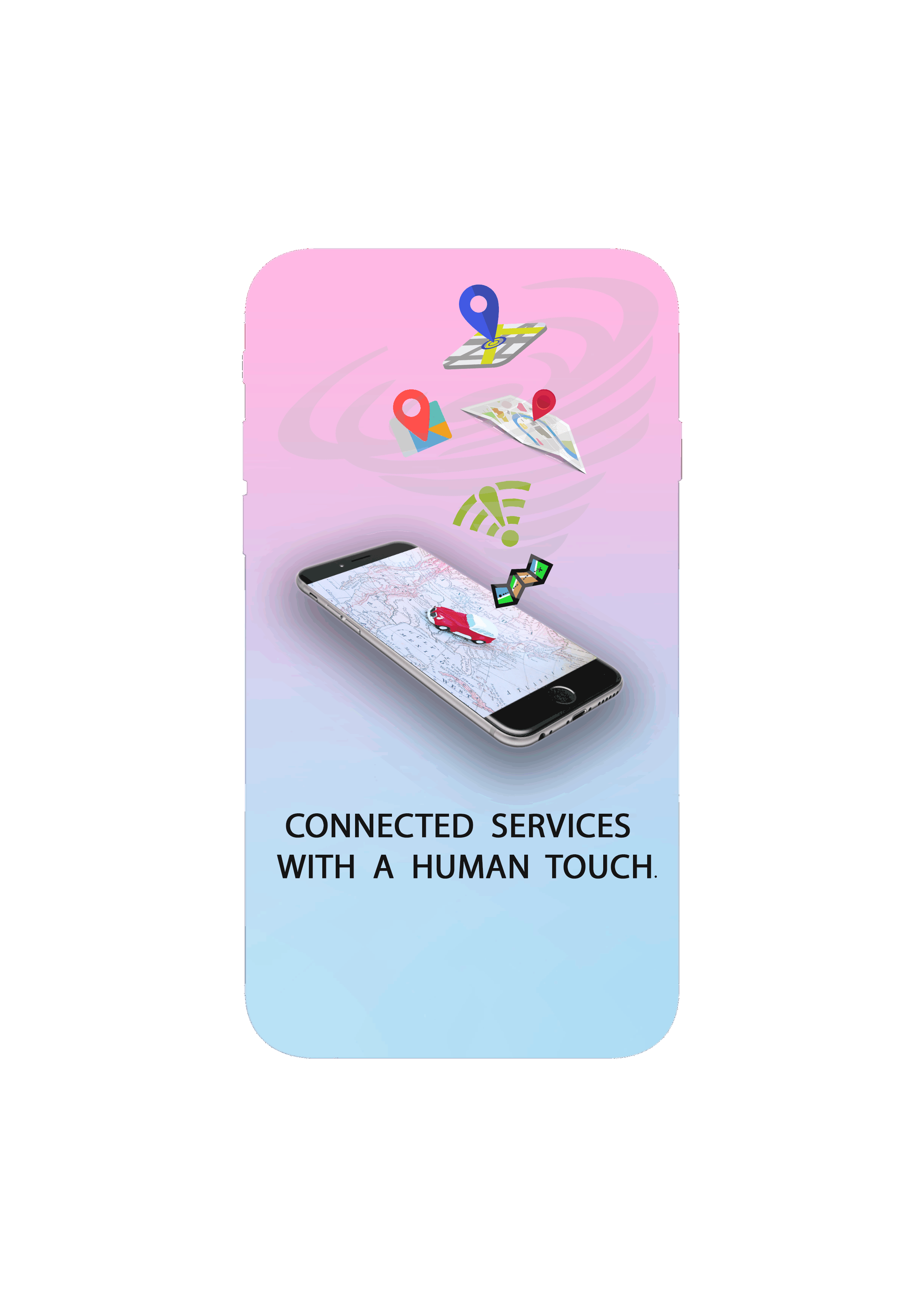Yes, most vehicle tracking systems are intended to be available from numerous devices and platforms. This means you may use the system on your computer, smartphone, tablet, or any other device with an internet connection. Platform compatibility varies, however these systems may typically be accessible via web browsers, dedicated mobile apps, or even desktop software. This enables you to monitor and manage your fleet or vehicles more easily and effectively.
List of 20 Best Vehicle Tracking System
Masternaut Vehicle Tracking is the top GPS and GPRS tracking system for your vehicles. Our state-of-the-art technology records accurate real-time data on location, speed, and distance, ensuring you always have the most current information available...Read More Masternaut Vehicle Tracking
Frotcom Vehicle Tracking, a complete fleet management and tracking solution designed for transportation, logistics, and distribution companies. With cutting-edge features such as live tracking, optimized routing, and maintenance planning, Frotcom str...Read More Frotcom Vehicle Tracking
SkoolApp solution for modern schools. Keep your school at the forefront of the digital age with our advanced features, including white labeling, integration with cutting-edge technologies like robotics and data science, and specialized Communication...Read More SkoolApp
MyBus Track – is the mobile GPS tracking solution. Stay on top of your fleet, drivers, sales and marketing leads, individuals, food deliveries, and consignments in just a single tap. With a user-friendly interface, effortlessly monitor and han...Read More MyBus Track
Track em is a GPS tracking and fleet management solution for your business. Take charge of your valuable assets and optimize your fleet operations effortlessly with our advanced software. With remote tracking and comprehensive management capabilities...Read More Track 'em
LOQQAT is the leading student tracking solution designed for parents and school administrators. With real-time updates and notifications, LOQQAT provides peace of mind by keeping you informed about your childs whereabouts. Stay connected and aware of...Read More LOQQAT
CLOBAS is a cloud-based solution for campus management. Improve efficiency, growth, and operations with advanced features and real-time data. Manage every aspect of your institution from a centralized platform and bid farewell to manual processes. Ex...Read More CLOBAS
SmartBus is the leading school bus management software that streamlines the process of tracking and managing school buses. Our advanced technology guarantees efficient and secure transportation for students, providing reassurance to school administra...Read More SmartBus
Chainway Fleet Management is aaffordable and user-friendly solution for efficient vehicle tracking and driver monitoring. Our service simplifies fleet management without high initial expenses, allowing you to stay ahead of the game. Keep track of you...Read More Chainway Fleet Management
AVLView Fleet Automation is a telematics IoT platform that simplifies fleet management tasks. Our solution is compatible with leading GPS tracking devices, such as Teltonika, Ruptela, GT06, and TK103, to automate processes and increase the productivi...Read More AVLView Fleet Automation
WebTrack Fleet is a fixed vehicle tracking software for businesses with a mobile workforce. Keep a close eye on your drivers performance and gain valuable insights with ease. Monitor your fleets movements and maximize your operational efficiency with...Read More WebTrack Fleet
Ray Tech Transport, transportation management system that is specifically designed to meet the needs of modern businesses. Ideal for transportation companies, logistics firms, and fleet owners, this software offers a comprehensive set of tools and fe...Read More Ray Tech Transport
Flotilla IoT is a fleet management solution. Our all-inclusive system offers customizable features to optimize your business operations and reach your objectives with ease. From real-time tracking to streamlined maintenance, Flotilla IoT has you cove...Read More Flotilla IoT
MoveX.ai is a fleet management software that simplifies vehicle tracking, monitoring, and dispatching in real-time. Its all-inclusive platform enables businesses to significantly cut down operational expenses and drive up profits. Equipped with advan...Read More MoveX.ai
Fleetx - the leading fleet management and GPS/vehicle tracking software in India. Powered by advanced AI/ML technology, Fleetx revolutionizes fleet and logistics operations by streamlining processes and delivering real-time recommendations and insigh...Read More fleetx
Autobond is a telematics solution that revolutionizes fleet management. With its advanced GPS tracking feature, you can effortlessly monitor the current location of your vehicles, receive immediate alerts for emergencies and theft, and track their ig...Read More Autobond
TechnoPurple Vehicle Tracking, the advanced solution for managing and tracking fleet vehicles using state-of-the-art GPS technology. Our software offers substantial cost savings and a speedy ROI. With a user-friendly Java-based Web Application and Go...Read More TechnoPurple Vehicle Tracking
Field Force Tracking is an advanced software that streamlines the tracking process of your entire workforce using their registered mobile devices. With real-time location tracking on Google Maps, this software enables organizations with field employe...Read More Field Force Tracking
Taximobility is a taxi suite that simplifies operations for both taxi and limo companies. With our user-friendly software, booking, tracking, and dispatching taxis has never been easier. Experience hassle-free operations and provide efficient service...Read More Taximobility
Tagmytaxi solution for entrepreneurs in the taxi industry. This innovative Uber clone app offers a cost-effective solution to boost your profits. With its streamlined dispatch, booking management, resource tracking, and customer acquisition features,...Read More Tagmytaxi
Learn More About Vehicle Tracking System
- What Is Vehicle Tracking System?
- What Are The Recent Trends In Vehicle Tracking System?
- Benefits Of Using Vehicle Tracking System
- Important Factors To Consider While Purchasing Vehicle Tracking System?
- What Are The Key Features To Look For In Vehicle Tracking System?
- Why Do Businesses Need Vehicle Tracking System?
- How Much Time Is Required To Implement Vehicle Tracking System?
- What Is The Level Of Customization Available In Vehicle Tracking System?
- Which Industries Can Benefit The Most From Vehicle Tracking System?
- Conclusion
What Is Vehicle Tracking System?
A Vehicle Tracking System (VTS) is a digital system that enables real-time monitoring and management of vehicles, assets, and personnel in motion. It uses GPS, cellphone, and satellite technology to track vehicles' location, speed, and direction, delivering valuable data and insights for fleet management and logistics. VTS typically comprises of a tracking device mounted in the vehicle that sends information to a central server.
This data can subsequently be accessed by fleet managers or business owners via software tools, allowing them to monitor their assets and activities closely. The tracking gadget can also be outfitted with additional sensors to gather information on fuel level, engine performance, and driver behavior. One of the main advantages of employing a VTS is increased operating efficiency.
Businesses can optimize routes, reduce idle time, and save fuel by having real-time visibility into vehicle location and performance. This reduces costs and increases production. In addition to tracking, VTS provides additional features such as geofencing, which allows you to create virtual limits and receive alerts when a vehicle enters or exits the designated area.
This is useful for detecting unlawful vehicle use and tracing stolen automobiles. Another benefit of VTS is improved safety. Fleet managers can take proactive actions to promote safe driving practices and reduce accident risk by monitoring driver behavior and receiving quick notifications for speeding or severe acceleration/braking. When selecting a VTS, examine the type of tracking technology utilized, the variety of capabilities available, and compatibility with your current fleet management systems.
It is also critical to ensure that the tracking device is tamper-proof and provides reliable connectivity. With constant improvements in the VTS business, there are numerous solutions available on the market. Choosing a VTS that meets your specific requirements can significantly benefit your organization by streamlining operations, enhancing safety, and ultimately increasing profitability.
What Are The Recent Trends In Vehicle Tracking System?
The market for vehicle monitoring systems has grown significantly in recent years, owing to technological improvements and an increased demand for efficient fleet management solutions. As the world becomes more connected and digital, the use of car monitoring systems grows in a variety of industries, including transportation, logistics, and personal vehicle tracking.
One of the most noticeable advances in car tracking systems is the use of GPS and satellite technology. This enables real-time vehicle tracking, accurate position data, improved route planning, and driver behavior tracking. Furthermore, the incorporation of Internet of Things (IoT) technology has allowed for enhanced functions such as remote diagnostics and vehicle health monitoring.
Another development in the vehicle tracking system market is the use of cloud-based solutions. This enables quicker data access, increased scalability, and higher security. Cloud-based solutions allow users to access real-time information from any device with an internet connection, making them perfect for enterprises with a distributed workforce. The rise of smart vehicles and self-driving technology has had a tremendous impact on the vehicle tracking system market.
The incorporation of advanced sensors and communication technologies in vehicles improves tracking and monitoring capabilities, making it easier for businesses to manage fleets and increase overall efficiency. In addition to technological developments, the vehicle monitoring system industry has shifted to more user-friendly and customizable solutions. This is due to the demand for systems that meet specific business requirements and can be easily connected with existing software and applications.
Benefits Of Using Vehicle Tracking System
Vehicle tracking systems have become indispensable tools for many individuals and corporations. They provide a variety of features and perks that not only give convenience but also increased safety and security.
We'll go over the numerous advantages of using a vehicle monitoring system so you can make an informed decision when buying one.
1. Real-Time Monitoring: One of the key advantages of having a car tracking system is the ability to monitor your vehicle in real time. This means you can track your vehicle's exact location, speed, and path at any time. This function is especially valuable for firms with a fleet of vehicles because it helps them to track their assets and boost productivity.
2. Improved Fleet Management: Vehicle monitoring technologies can help firms that rely on a fleet of cars manage their fleet better. Real-time tracking enables organizations to optimize routes, eliminate downtime, and monitor driver performance. This can lead to cost savings, enhanced productivity, and more customer satisfaction.
3. Increased Safety: Vehicle tracking systems provide an additional degree of protection for both drivers and businesses. Real-time data enables organizations to guarantee that their drivers are conforming to speed restrictions and safe driving practices. In the event of an emergency, the vehicle's location can be rapidly determined, allowing for speedier reaction time.
4. Theft Prevention And Recovery: Another significant advantage of employing a car tracking system is its capacity to detect and recover stolen automobiles. In the event of a theft, the real-time tracking feature can assist in locating the car, boosting the odds of recovery. Many systems also include geofencing capabilities, which send an alert if the vehicle leaves a designated area without permission.
5. Cost Savings: Using a vehicle tracking system can contribute to long-term cost savings. Businesses can save money on fuel by optimizing routes, increasing fuel economy, and reducing idle time. The capacity to monitor driver behavior aids in preventing costly accidents and vehicle maintenance.
6. Insurance Benefits: Many insurance companies provide savings for automobiles outfitted with a tracking device. This is because car tracking systems lower the chance of theft and accidents, making them a more secure investment for insurers. Installing a tracking system may result in decreased insurance prices for your vehicle.
Important Factors To Consider While Purchasing Vehicle Tracking System?
When selecting a vehicle monitoring system, you should carefully evaluate various things to guarantee that you get the best one for your individual requirements.
Here are some essential aspects to consider while making your decision:
1. Purpose Of The System: The first and most important element to address is why you need a vehicle tracking system. Are you looking to monitor your personal vehicle for safety, follow your fleet of commercial vehicles, or collect data for logistics? Different systems are developed for different reasons, so choose one that meets your individual needs.
2. Real-Time Tracking: The ability to track your vehicle in real time is an essential element of any vehicle tracking system. Real-time tracking allows you to watch your vehicle's current location, speed, and direction. This feature is especially valuable for fleet managers who need to guarantee that their drivers adhere to specified routes and safety requirements.
3. GPS Technology: Most vehicle tracking systems employ GPS (Global Positioning System) technology to locate the vehicle. However, not all GPS systems are made equal, thus it is critical to assess the accuracy and dependability of the GPS technology employed in the system under consideration. Look for systems that use powerful GPS technology to deliver accurate and up-to-date location information.
4. Ease Of Use: A vehicle monitoring system is only useful if it is simple to use. Before making a purchase, consider the system's user interface and navigation options. A user-friendly system will save you time and effort in the long run while also ensuring that the data generated by the system is accessible and understandable.
5. Reporting Capabilities: Comprehensive reporting is an essential component of any vehicle monitoring system. Look for devices that can generate thorough reports on vehicle speed, route history, and driver behavior. These reports can help you detect patterns, optimize routes, and increase overall efficiency.
6. Integration With Other Systems: If your company utilizes other software systems like fuel management or maintenance tracking, search for a vehicle tracking system that can work with them. Integration enables a continuous flow of data and can provide a more complete picture of your fleet operations.
7. Cost: As with any purchase, it is critical to examine the price of the car monitoring system. Compare costs and features of various systems to determine which one delivers the most value for your money. Remember that the cheapest solution is not usually the most effective, so compare the price against the system's features and capabilities.
8. Customer Support: A dependable customer service team is an essential component of any vehicle monitoring system. Look for solutions that provide 24-hour customer support to ensure you get help whenever you need it.
What Are The Key Features To Look For In Vehicle Tracking System?
When looking to buy a car monitoring system, there are a few crucial aspects to examine to guarantee that you're getting a dependable and effective solution. These features not only improve the general functionality of the system, but they also influence how well it suits your individual wants and expectations.
Here are the key elements to look for in a car monitoring system:
1. Real-Time Tracking: The capacity to track your cars in real time is essential for effective fleet management. This function allows you to monitor your cars' location, speed, and route as they travel, giving you with accurate and up-to-date information.
2. GPS Technology: Most vehicle tracking systems rely on GPS technology to establish a vehicle's exact location. This enables exact tracking and accurate data collecting, leading in more efficient fleet management.
3. Geofencing: Geofencing is a tool that lets you create virtual borders around a specified location on a map. You will receive alerts when a vehicle enters or exits the defined region, allowing you to monitor vehicle movements and take appropriate action if necessary.
4. Historical Data And Reports: A decent car tracking system should allow you to save and access historical data, such as route history, vehicle speed, and fuel consumption. This information can help you examine your fleet's performance and make more educated decisions to increase efficiency and cost-effectiveness.
5. Customizable Alerts: Alerts are a useful tool that alerts you to any unexpected or alarming situations, such as speeding or idling, that require your attention. Look for a solution that allows you to tailor these alerts to your individual needs.
6. Mobile Compatibility: A car monitoring system that works with mobile devices enables you to obtain information and track vehicles while on the go. This function is especially beneficial for fleet managers who need to monitor vehicles when away from their desk.
7. Integration With Other Management Systems: Your vehicle tracking system should work seamlessly with other management systems, such as fuel and maintenance management software. This integration can provide a comprehensive and centralized picture of your fleet, hence increasing efficiency.
8. User-Friendly Interface: A vehicle tracking system with an easy-to-use interface makes data more accessible and understandable. Look for a system with a straightforward and intuitive interface so you can get the most out of the information supplied.
Why Do Businesses Need Vehicle Tracking System?
As businesses grow and strive for greater operational efficiency, a dependable and accurate vehicle monitoring system becomes increasingly important. Vehicle tracking systems have numerous benefits, making them an indispensable tool for enterprises of all sizes. First and foremost, vehicle tracking systems give real-time location information, allowing businesses to follow the exact location of their cars at any time.
This capability is especially useful for businesses with a big fleet of cars because it allows them to optimize route planning, cut fuel costs, and boost overall productivity. A vehicle monitoring system also assists organizations in keeping track of their employees' driving habits. Businesses may ensure that their vehicles are handled safely and effectively by implementing features like speed tracking and forceful brake alarms.
This not only encourages a culture of cautious driving, but it also minimizes the likelihood of accidents, lowering insurance costs. Furthermore, vehicle tracking systems provide thorough data and analytics, giving organizations vital insights into their fleet's performance. This data can be utilized to identify areas for improvement, optimize transportation procedures, and, eventually, save costs. Aside from operational benefits, a vehicle tracking system acts as a security protection for organizations. In the event of theft or unauthorized usage, the system generates alerts, allowing businesses to take immediate action and retrieve their stolen vehicles.
How Much Time Is Required To Implement Vehicle Tracking System?
The time required to establish a vehicle monitoring system varies depending on several factors, including the size of the fleet, the complexity of the system, and the level of customization needed. The average implementation time ranges between a few days to a few weeks. For smaller fleets of less than 50 vehicles, the implementation process can be done in a week.
This involves hardware installation, software setup, and user training. However, for bigger fleets with hundreds of vehicles, the deployment procedure may require several weeks to ensure a seamless and effective rollout. It is crucial to remember that the type of vehicle tracking system used can have an impact on installation and setup times.
For example, a plug-and-play system can be installed fast, whereas a more sophisticated system with extensive capabilities may take more time to set up and configure. Another aspect that can influence implementation time is the degree of customization required. Some vehicle tracking systems include conventional functions, while others can be modified to specific company requirements.
The more customized the system, the longer the implementation process may take. Employee training time is also an important consideration. A vehicle monitoring system is only effective if its users understand how to use it properly. As a result, investing time in comprehensive training for all users may ensure that the system is fully utilized and produces the expected results.
What Is The Level Of Customization Available In Vehicle Tracking System?
The level of customisation possible in a vehicle monitoring system varies significantly depending on the vendor. However, as a general rule, most systems offer a variety of customization choices to let you adjust the system to your individual requirements. One of the most important areas of customisation is the sort of tracking device employed. Many suppliers give a wide range of device alternatives, including OBD-II, hardwired, and battery-powered devices.
This allows you to select the best option for your cars and the level of tracking precision you need. Another key customizing consideration is the software used to track and manage the system's collected data. Most providers have a user-friendly interface that allows you to monitor real-time tracking data, set alarms and notifications, and create reports.
Some companies additionally allow you to personalize the dashboard and reports to match your individual requirements and tastes. In addition to these functions, many car tracking systems provide customization options for vehicle geofencing and driver behavior tracking. This allows you to specify particular boundaries and receive warnings whenever a vehicle crosses them.
It also allows you to monitor and manage drivers' speeds, forceful braking, and other driving habits, promoting safer driving practices. Furthermore, system customisation can include the data and reports created by the system. Some suppliers allow you to link tracking data with other systems, like as fuel and maintenance management systems, providing a more complete picture of your fleet's performance.
Finally, the level of customisation available in a vehicle tracking system is determined by the supplier and the exact features and options offered. It is critical to thoroughly investigate and compare several providers to determine which one best matches your demands and provides the level of customisation you seek for fleet management.
Which Industries Can Benefit The Most From Vehicle Tracking System?
Vehicle monitoring systems have become an indispensable tool for enterprises in a variety of industries. These modern systems offer real-time vehicle monitoring and tracking, which may be extremely beneficial to businesses of all kinds.
1. Transportation & Logistics Industry: The transportation and logistics business is a major user of vehicle tracking systems. With a huge fleet of trucks to operate, these enterprises must assure prompt and effective delivery of goods. A vehicle tracking system allows them to follow each vehicle's location and movement, as well as optimize delivery routes for efficiency and cost savings.
2. Construction And Contracting Industry: Vehicle tracking systems can also be very useful in the building and contracting industries. These enterprises frequently have many construction sites and projects operating concurrently, making it difficult to manage their fleet of cars. They can employ a vehicle tracking system to monitor the whereabouts of trucks, equipment, and other vehicles, assuring effective use while preventing theft or unlawful use.
3. Delivery And Courier Service: Delivery and courier services rely on prompt and dependable delivery of goods. Vehicle tracking systems give real-time information about the location and movement of delivery vehicles, allowing businesses to monitor and optimize delivery routes. Companies that use precise delivery monitoring may provide accurate delivery estimates to their consumers, increasing customer satisfaction.
4. Emergency & Rescue Services: Vehicle monitoring systems can also help emergency and rescue services like police, ambulances, and fire departments. These services frequently necessitate a fast response and prompt presence at the scene of an occurrence. A vehicle monitoring system allows emergency service providers to track the location of their vehicles, assign the nearest vehicle to an emergency, and enhance response time.
5. Public Transportation: To increase efficiency, public transportation systems such as buses, trains, and metros use vehicle tracking systems. These systems enable transportation businesses to monitor truck movements, track delays, and optimise routes for improved on-time performance. Real-time tracking allows passengers to receive exact arrival and departure times.
6. Insurance Companies: Insurance companies frequently offer lower premiums to people who install vehicle monitoring devices in their cars. These systems give useful data for assessing drivers' risk profiles, such as speed, driving behavior, and location. This information enables insurance companies to provide tailored, low-risk insurance packages to their clients, supporting safe driving practices.
Conclusion
To summarize, investing in a car monitoring system is a sound decision for any individual or business trying to improve the efficiency, safety, and security of their vehicles. With so many features and options available, customers should carefully assess their personal requirements and budget before making a purchase. When comparing solutions, customers should prioritize features like real-time tracking, reporting capabilities, and ease of use.
It is also vital to assess the provider's reliability and customer service, as well as compatibility with various car models. In addition, buyers should consider the possible cost savings associated with deploying a vehicle tracking system. From lower gasoline costs to optimized routes, the long-term advantages far surpass the initial outlay. We hope our buyer's guide was useful and helpful in your decision-making process. Remember to conduct thorough study and comparisons before selecting a system that best meets your specific requirements. With a vehicle tracking system in place, you may have peace of mind while increasing the productivity of your cars.
Vehicle Tracking System FAQ's
Can Vehicle Tracking System Be Accessed Across Multiple Devices And Platforms?
Is Vehicle Tracking System Future-Proof And Adaptable To Emerging Technologies Like AI, Blockchain Or IoT?
Yes, the Vehicle Tracking System is future-proof and adaptable to new technologies such as AI, blockchain, and IoT. In reality, these technologies are already being used in vehicle tracking systems to improve their capabilities and add sophisticated features like predictive maintenance, real-time monitoring, and safe data encryption. Vehicle monitoring systems will continue to improve and adapt to meet the future needs of businesses and individuals as technology advances.
Is There A Free Trial Offered To Assess Vehicle Tracking System Before Committing?
Yes, some suppliers of car tracking systems provide a free trial period to allow consumers to evaluate their services before committing. This enables firms to evaluate the system's features and benefits. It also aids in making an informed decision on the purchase of the system. However, the length of the free trial period may differ depending on the provider. It is recommended that you take advantage of the free trial and properly analyze the system's effectiveness before making a commitment.
Does Vehicle Tracking System Offer Data Security Features And Meet Regulatory Compliance Standards?
Vehicle Tracking Systems include superior data security features and adhere to regulatory regulations to protect sensitive information. It employs encryption and other security measures to keep data secure and private. In addition, it adheres to severe standards such as the General Data Protection Regulation (GDPR) and the California Consumer Privacy Act (CCPA) to ensure privacy compliance. A Vehicle Tracking System provides piece of mind by ensuring that your data is secure and compliant.
Can Vehicle Tracking System Integrate Seamlessly With Existing Tools And Platforms?
Yes, most modern vehicle tracking systems are intended to work easily with existing tools and platforms. These systems communicate via standard protocols and APIs, making it simple to integrate with other software and applications.
This enables firms to streamline operations, collect more accurate data, and make sound decisions. Furthermore, vehicle monitoring systems are scalable, which means they can adapt to changing business demands and interact with new tools and platforms as they become available.






















